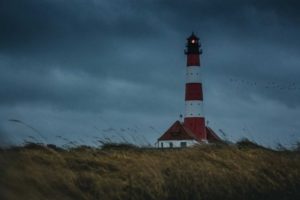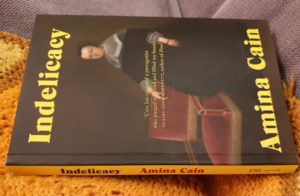This is a piece I wrote for the 2019 Literary Taxidermy Competition. I haven’t really looked at it since… so am resisting the urge to make further edits before posting! For those who don’t know, each year they give the opening and closing line of a famous work of literature. For the competition you have to fill in the middle… with whatever you want! 2019 was Farenheit 451, which I haven’t read yet, which I think helps in terms of thinking of something completely detached from the original work. I didn’t win, sadly – but I certainly enjoyed writing it.
It was a pleasure to burn. After all they’d put me through I wanted them to face up to what they were doing. I wanted them to smell my flesh as it fizzled and hear the crackling of my hair as it sent flames high above my head. This is who you are, I screeched at them, though I knew the message was as lost as the sparks hissing around me. “See, she feels no pain,” they said. “There is the proof,” they said. But they did not understand that I could both feel the pain – savage, caustic, a million and one pinpricks in every layer of every part of my skin, reaching deeper and deeper into my body – and also rise above it. I was calm, because I knew that this fire was only temporary, and then I would reach the eternal city of God and be cooled in the rivers of Eden. It was they who would have to endure this pain forever in the hellfire of eternity.
I helped this community, I soothed their sores, birthed their babies – and got rid of them, too, when they wanted. That woman, there, the one now looking at me through hard eyes – why, she thanked me just three weeks ago, taking my hands in hers as she wept with joy. And that man, so afraid that death would come knocking; today, here he stood, fully alive, watching his saviour die an excruciating death.
It was too much for them. How could I know more than their doctors? How could I be better than those who had paid and travelled to study, returned with their names written in calligraphic ink and stamped in wax?
They called it magic. I called it books. When you don’t have grubby mouths to feed – neither husband nor children – you can afford to search for the newest pamphlets, the most recent discoveries. You have time to read late into the night, wax stalagmites growing ever taller.
But there’s always someone who won’t stand for it. That’s what we’ve discovered – for it’s not just me. “They meet at night to perform their rituals,” they said. Well, yes, if you call reading, discussing, debating, a ritual. The doctors in this town learn by rote; learn once, and then, more often than not, forget. We – me, a few women from the next village – met to share the new discoveries, discuss techniques, findings. Yes, we did it by the fire. Yes, we dressed liberally, for we did not think we were overlooked, and were amongst only women. But I can promise you there was no ritual. The only live sacrifice we have made is ourselves, here, now, at the altar of knowledge, where we burn.
Philomena was the first to go. The smith in her village had taken a liking to her, proposed marriage. They barely knew each other; how could they, when men and women are not allowed to converse alone? She said no, less gently than perhaps she might. He became convinced she had a lover, asked the sheriff to ransack her home. They found the books. “Sorcery!” they cried. No-one bothered to check what the books actually contained. Hanged at dawn, head lolling like a drunken landlord.
Lydia was next. Drowned. That was when I began to fear for myself, began to take a low profile. Not that I felt much like going out in company anyway. You don’t, not when one of your friends has been hanged and another sunk to the sodden riverbed. You feel more like staying home alone, staring into the embers of your fire as you slowly pour yourself another sip of brandy. Someone saw me go out to the privy once: drunk, staggering a little, muttering to myself, maybe. “Deranged,” I heard them intone. “Possessed,” the other chanted. I didn’t care; I saw only the image of Lydia’s bleached, bloated face.
I decided my medicine would be for me alone; these ingrates didn’t deserve it. That was my mistake. Once rejected, they grew angry; once they no longer needed me, they turned.
As a young girl I loved to make my potions, collecting herbs beneath the stars and grinding seeds into a paste. I knew the properties of every flower and could prepare a dressing for any wound. I used to run through that field over there, the one I could just about still see through the smoke and the flames, and sing songs long forgotten by the rest of the village – songs my mother had learned from her mother.
Once, I tripped and grazed my knee. The cuts were not deep but they stung enough to prick tears. And my skirt was dirtied with the tiniest flecks of blood. I ran back through the waving sheaves of corn to my mother, who took my little hand in hers and guided me to the churchyard. Her mother was buried beneath a small mossy stone, with one barely readable word: “Mary.”
“Come, put your hand on the moss, my little one, and make the sign of the cross. And now kneel and touch the ground. And sprinkle this lavender. And place a pebble here. Now grandmother will smile down on you from heaven, and make you feel better.” And I did, a little.
“Does father lie somewhere like this, beneath a stone like that?” I asked – bravely, for I knew that asking questions about my father put my mother in a strange mood.
“I don’t think so,” she said, taking my hand roughly as she guided me away. “I think – I hope – he’s a thousand leagues under the sea, like he deserves.”
I wondered whose face was more waterlogged – his or Lydia’s. And could the soul survive underwater, to escape up to the heavens above? Or did it grow confused by the shimmering light, and wander through a watery underworld for year upon year, until eventually it flowed into the Styx, thereby condemning itself to hell for evermore?
When I reach heaven, it shall be a great city, full of people who mind their own business and don’t mind yours. There will be a great street full of booksellers, except all the books will be free for the taking. There will be lavender lining the streets and meeting places for women and all the people whose lives I’ve saved will help me in return.
It was a pleasure to burn, but it was also the most ravaging, intense pain I have ever felt. I can only hope that by suffering it with dignity, as Jesus did, I shall earn my place in the City of God.
They spat that at my mockery of a trial. “She-devil!” cried the man whose wife I nursed through childbirth. “Succubus!” hissed the woman who lost her baby through her own husband’s violence, but blamed me.
I may once have kissed a woman, it is true. It was night. Stars twinkled through the trees and a half moon surveilled genteelly over us. We were wearing our flowing, loose robes, comfortable as could be, sitting in a circle in the woods, laughing as we tossed more kindling onto the fire, which spat with the shells of the seeds we were eating. Our hair was liberated from our coifs and flowed long and voluptuous down our chests. There was a gleam in her eyes which grew as she took more sips from the communal whisky cup. There was a moment when we laughed together, heads back at the same time, eyes back together at the same time. She was so – alive. Without knowing what I was doing I leaned into her and kissed her, quickly but fully on the lips. Something blazed inside me. I realised what I was doing and pulled away. She smiled. I looked in horror at the others, but they only laughed. And we carried on talking.
But no-one saw me that night, I’m sure of it. That was months ago. Months before she was drowned. So why burn me now?
When we reach the City of God together, we will light fires and dance in our loose robes, shaking our hair in the wind. We will find our mothers, and bring them to join in the dance too, welcoming them with wine and sweetmeats. We will sing our own songs of old, and hymns too, and not care which they are so long as our hearts are pure. We will forgive those who have wronged us, for they know not what they do.
When we reach the city.
[by Rose Diell]

